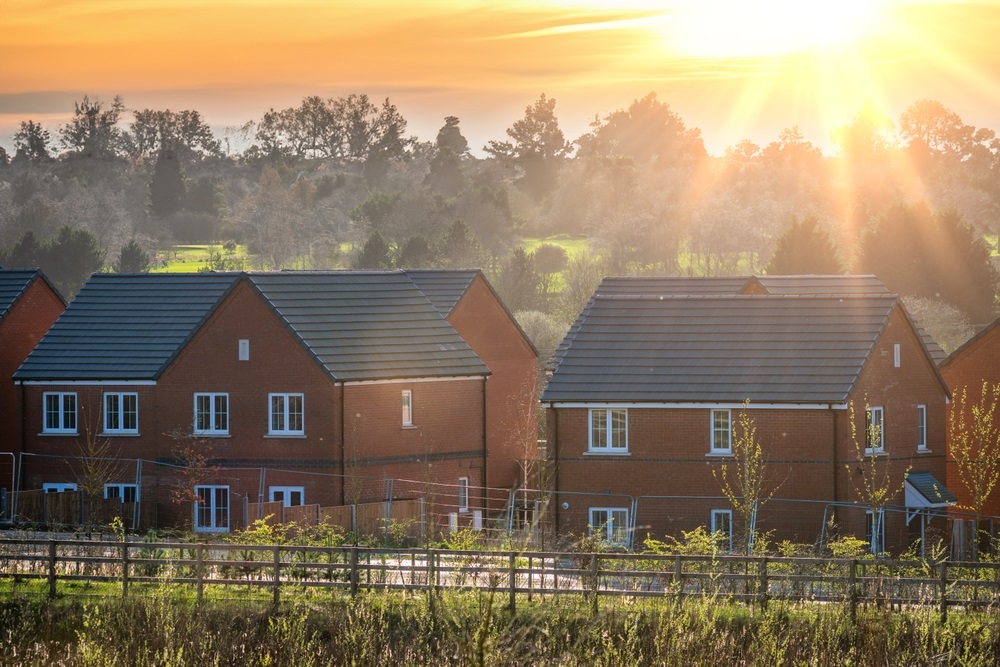Buying a home in the UK has become more affordable thanks to a combination of modest house price rises and strong wage growth.
 This is according to a report by mortgage lender Halifax which said recent interest rate cuts had also helped improve prospects for homebuyers.
This is according to a report by mortgage lender Halifax which said recent interest rate cuts had also helped improve prospects for homebuyers.
According to the Halifax House Price Index property values have gone up by 3.8% compared to a year ago, reaching an average of £292,508.
Meanwhile, annual earnings for full-time workers climbed by 5% to an average of £44,667, over the same period.
As such, wage growth outpaced house price inflation, putting the house price to income ratio at 6.55. This is lower than last year’s ratio of 6.62 and is significant reduction on the 7.24 ratio in the summer of 2022.
But there is another factor influencing affordability and that is mortgage rates.
Halifax said the number of new mortgages agreed recently reached its highest level in two years.
Interestingly, the fact mortgage rates increased has played a helping hand in improving affordability. High rates have impacted the housing market, meaning prices have remained flat for the last two years.
Halifax said the average house price was £292,410 in 2022 compared to £292,508 in 2024.
But, thanks to falling mortgage prices in the last year, mortgage costs as a percentage of income have fallen from 33% to 29% – its lowest level in over two years.
On the same basis, mortgage costs have fallen in each nation and region of the UK over the last year.
Amanda Bryden, head of Halifax Mortgages, said whilst this was great news for first-time buyers there remained challenges.
“Housing affordability has improved over the past year, thanks to stabilising property prices, strong wage growth, and easing interest rates,” she said.
“That’s great news for first-time buyers and existing homeowners looking to remortgage or move up the property ladder.
“However, while homes are becoming more affordable, the progress has been gradual. Buying a property remains a significant challenge for many, with prices still near record highs and interest rates likely to stay higher than we’ve been used to over the past decade.”
Areas where homes have become less affordable
Whilst Halifax’s report paints a general picture of the situation buyers across the UK, when it focussed in on the regions there was often a very different scenario playing out.
In some parts of the UK, buying a home had actually become less affordable. Northern Ireland experienced the biggest increase in the house price to earnings ratio from 4.88 last year to 5.09 this year. This, said Halifax, was driven by a substantial 10% rise in house prices.
In England, the North West, South East and Yorkshire & Humberside also saw an increase in their house price to earnings ratios.
London might have the highest average house prices – £539,238 – but its house price to earnings ratio of 8.22 was lower than the South East, said Halifax, which was the least affordable of all regions.
The Elmbridge borough of Surrey was the least affordable local area by some distance, with a house price to earnings ratio of 17.54, according to the analysis.
Bryden, added: “The most sought-after areas tend to have the highest prices, and local developments, such as improved transport links or job opportunities, can all help to drive demand.”
Advice to first-time buyers from a mortgage lender
For anyone looking at purchasing their first home, Bryden’s advice – based on this research – is to be flexible with location by exploring nearby neighbourhoods, which can sometimes offer better value.
She added: “For those struggling to find the funds to take that first step onto the housing ladder, engaging early with a mortgage adviser or broker is always worthwhile.
“Navigating the home buying journey and mortgage market can be complex, but they can help you understand your budget, the support options available through various government and lender schemes, and the range of products on offer.
“For example, shared ownership can be a great option for first-time buyers. It allows you to purchase a share of the property’s market value rather than the entire home, making it a more affordable way to step onto the housing ladder and giving you the benefit of growing your equity share if the property goes up in value.
“This means you could have more deposit to put down when you make your next move.”














